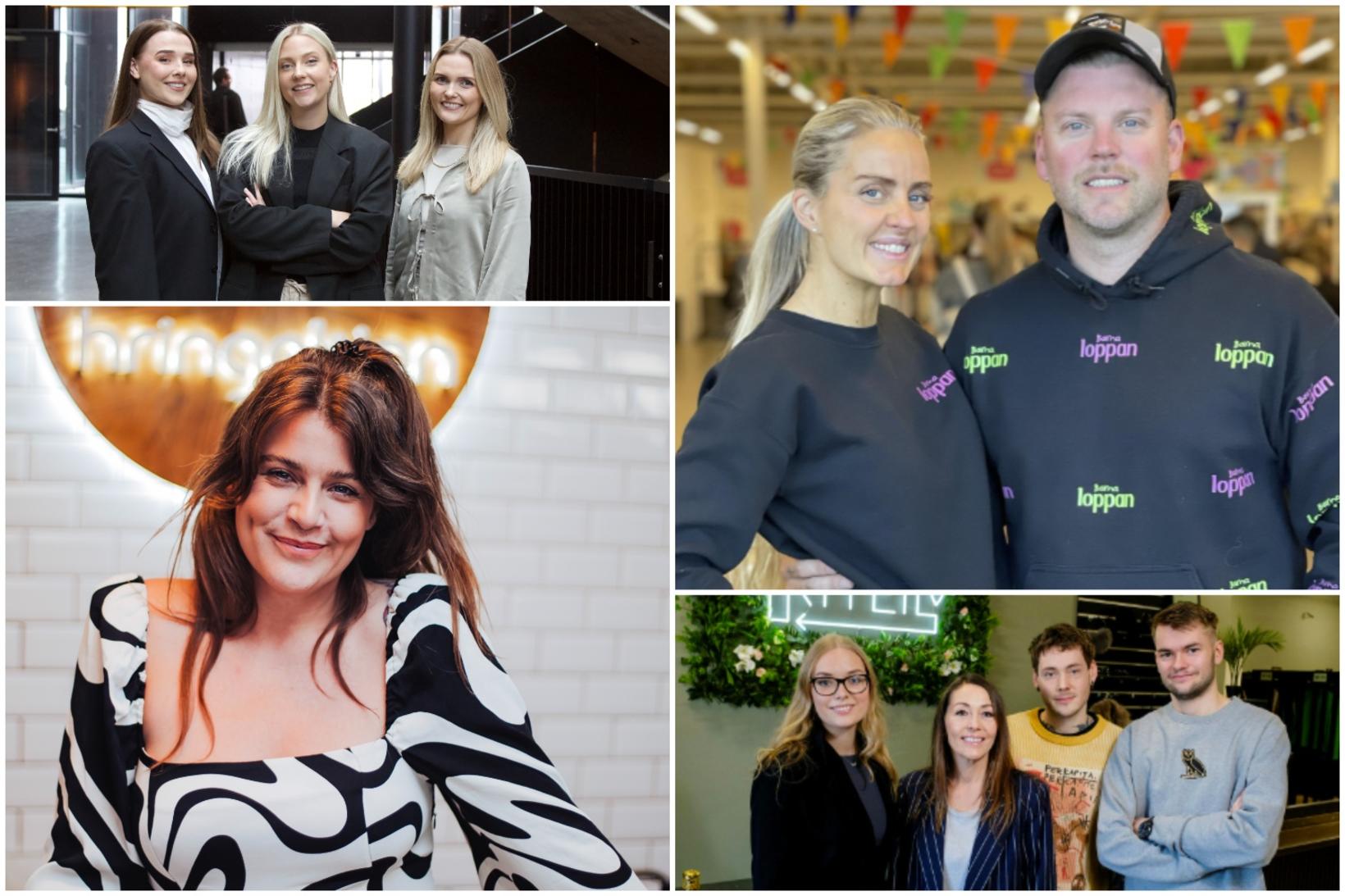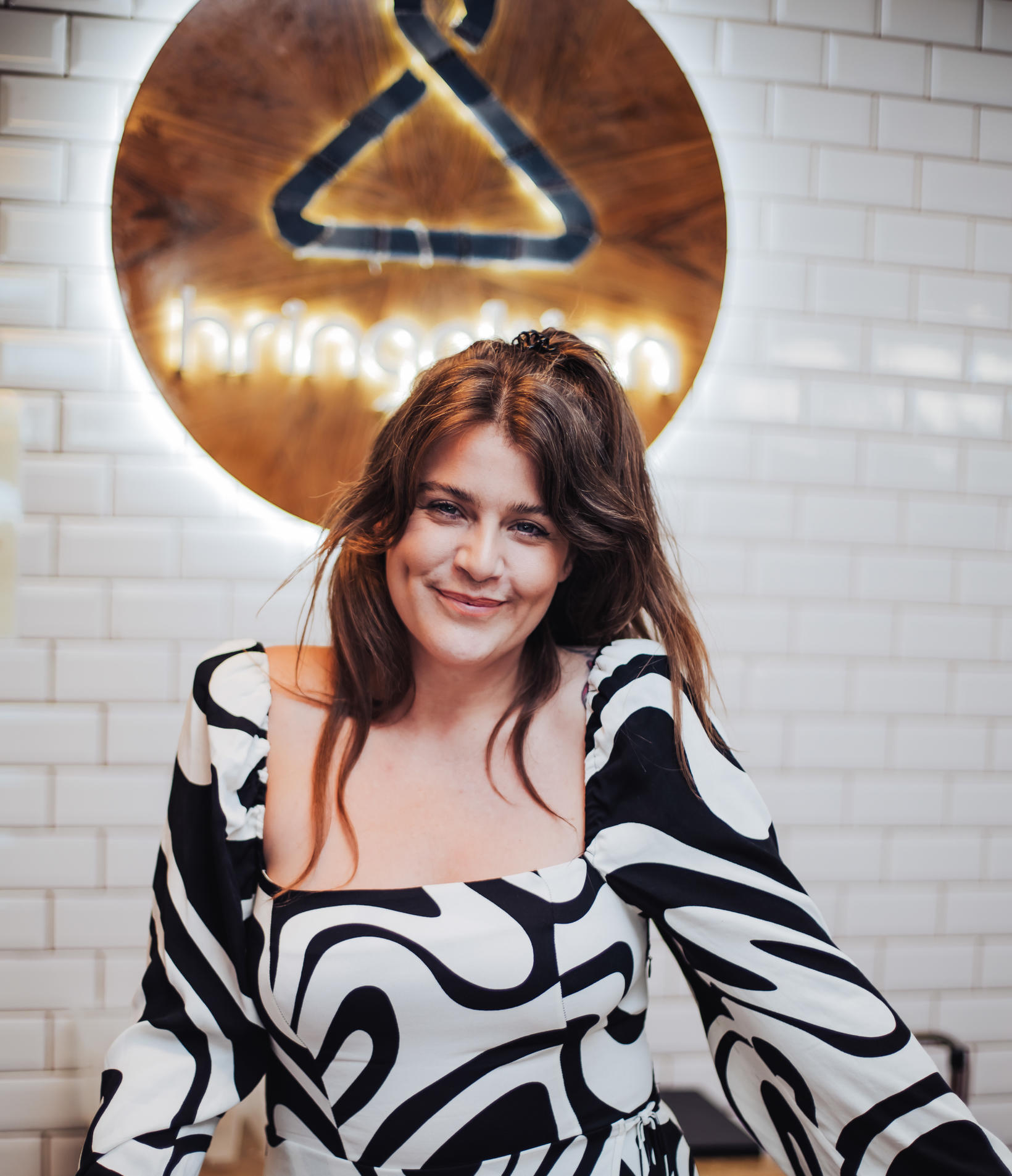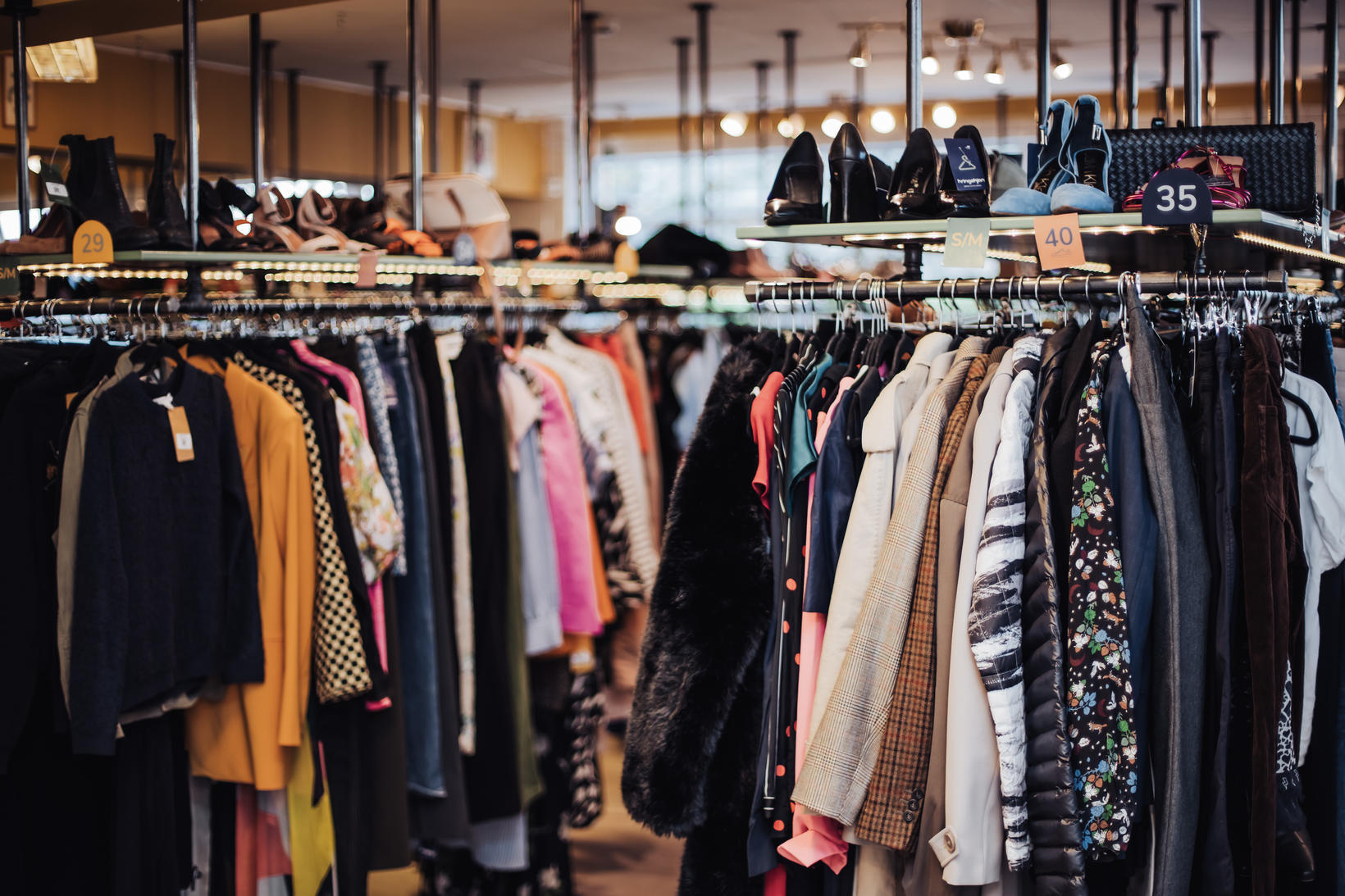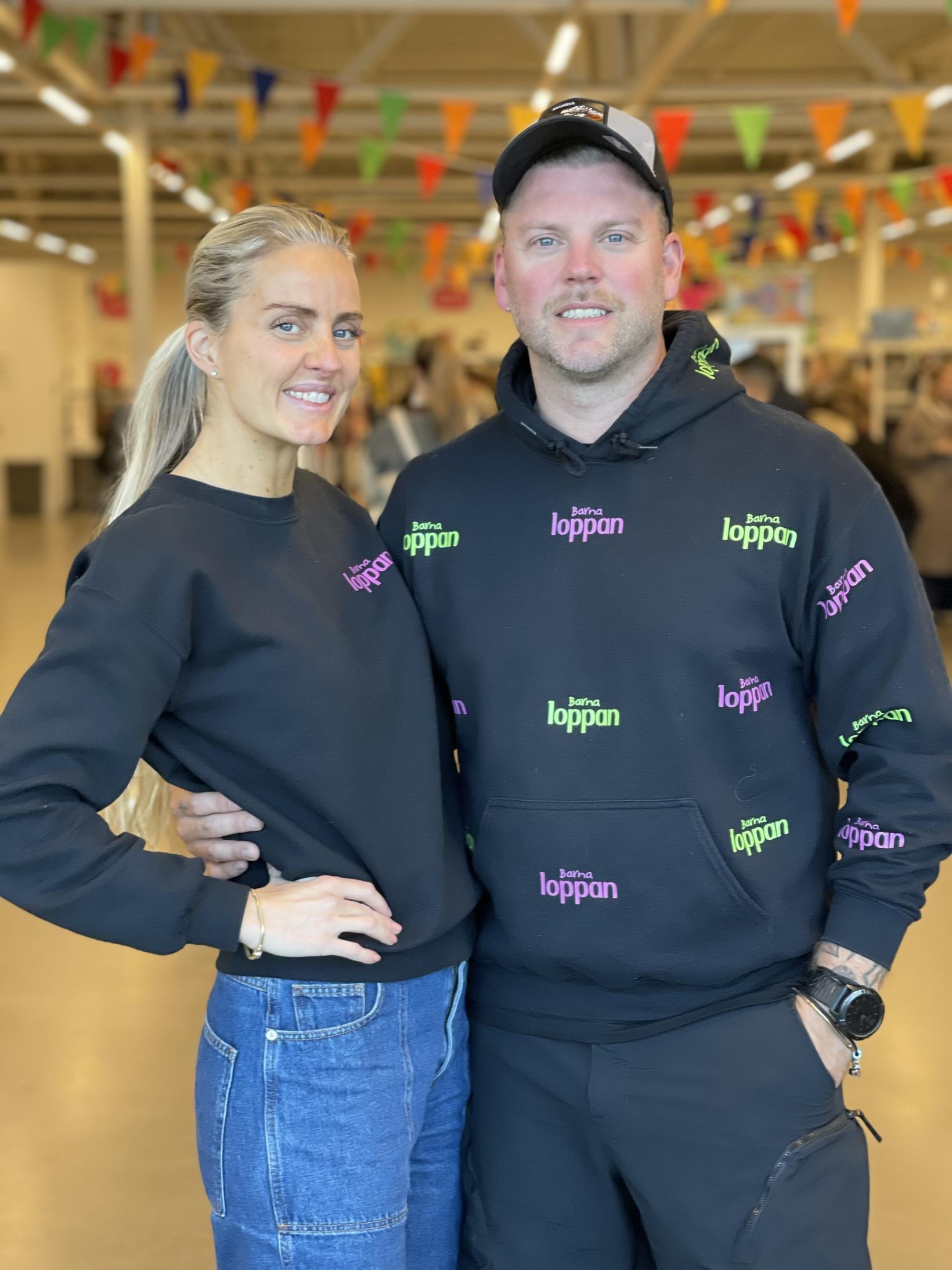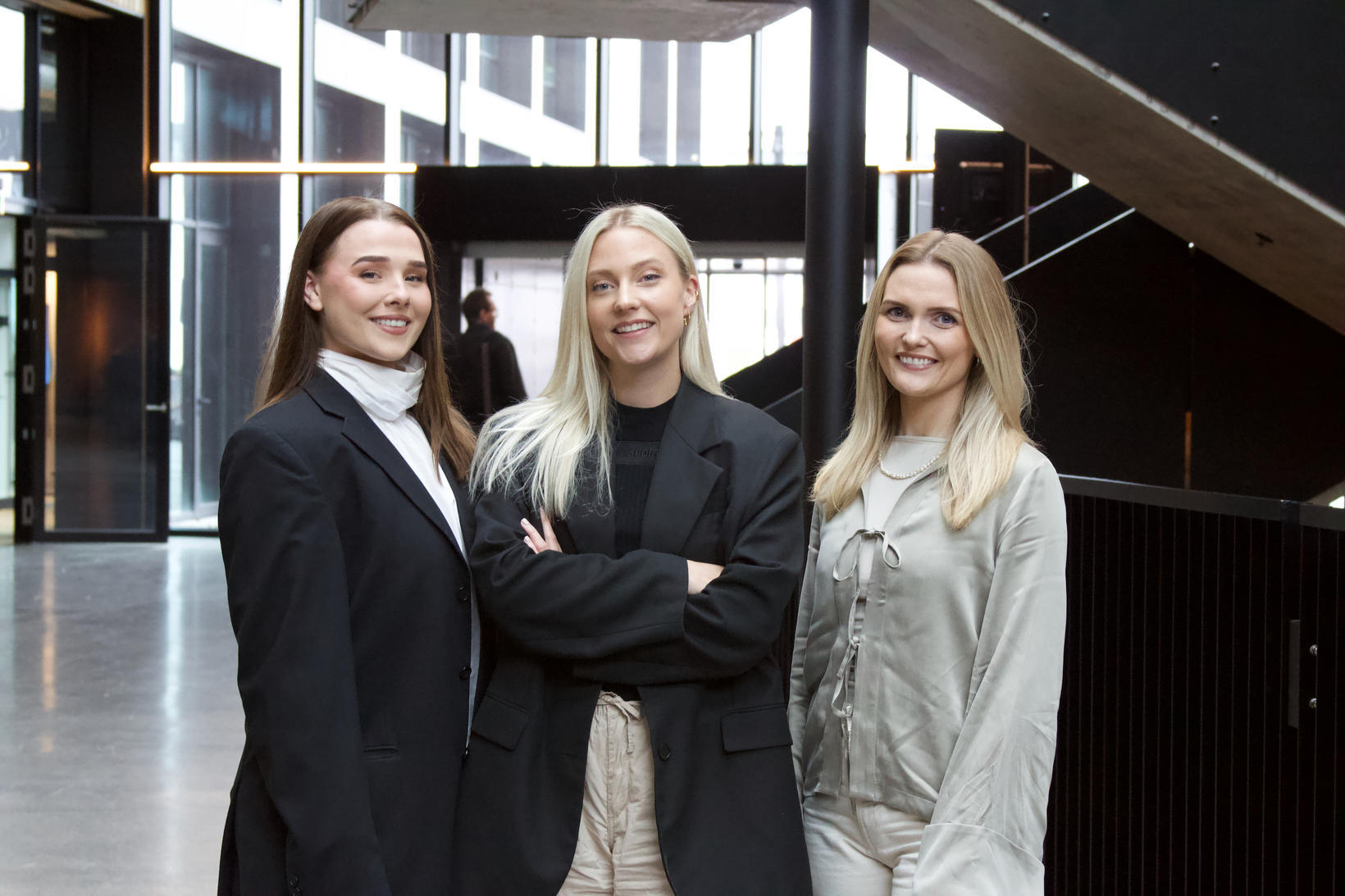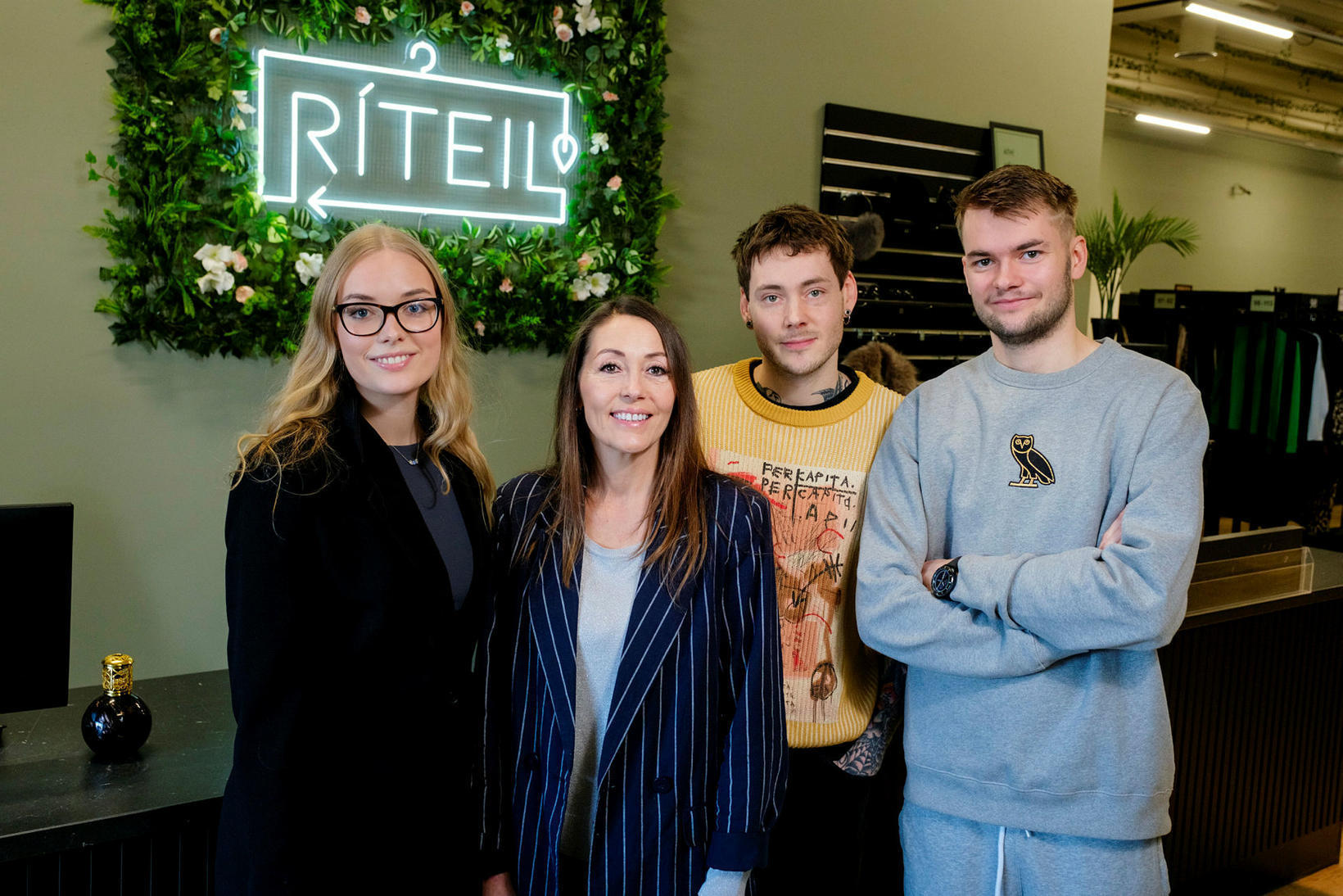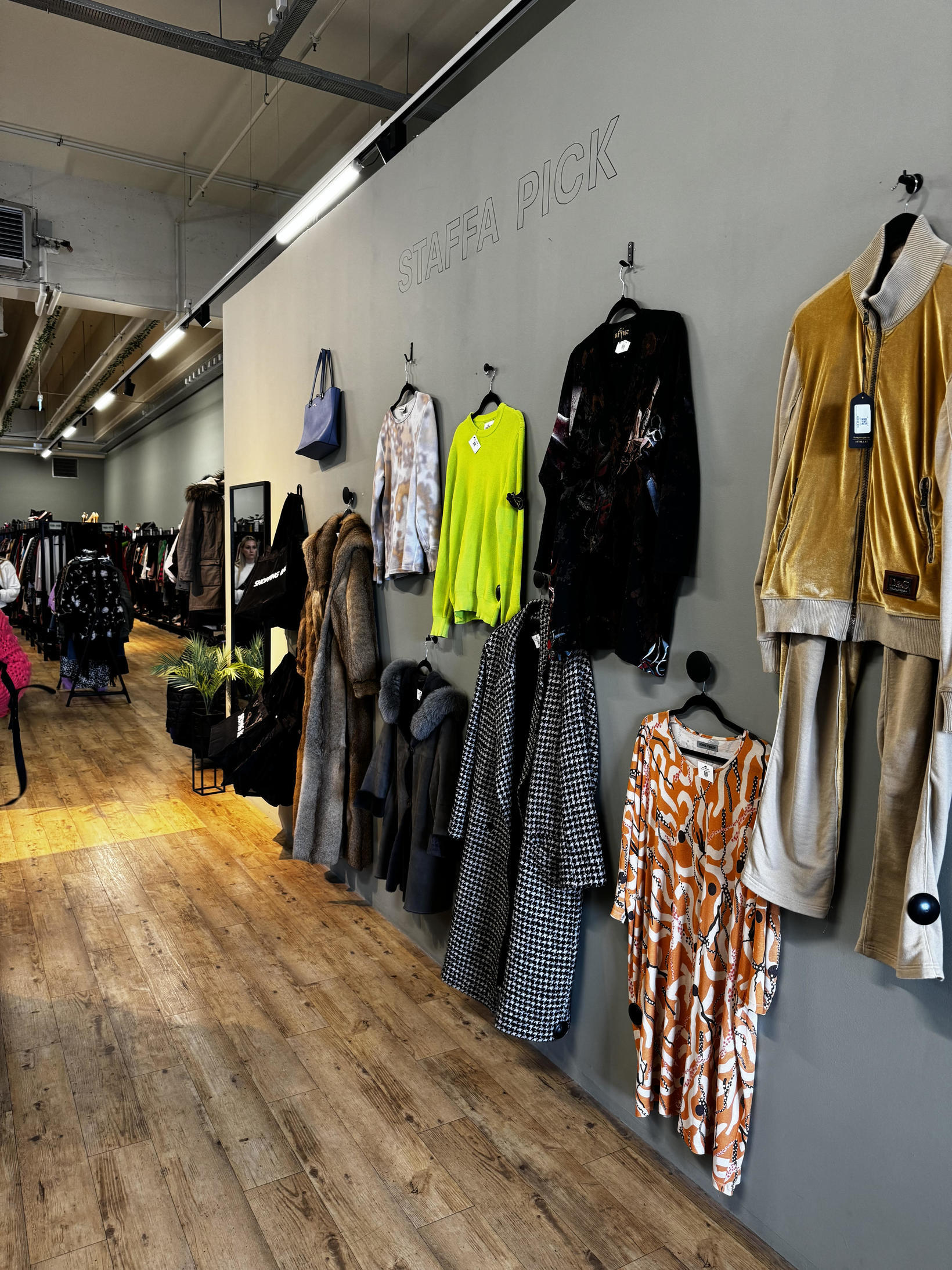They think they have changed the purchasing behavior of Icelanders
The owners of the circular economy stores say that this is the future of commerce in Iceland. Photo/Composite image
So-called circular economy shops are becoming increasingly popular in this country, and in most of them, you have to book a stand several months in advance. A circular economy shop is a store where you can shop and sell used items such as clothing, shoes, and household goods. Usually the seller rents a booth, and sets up the products, but does not have to be on duty himself. The service to the seller then varies between stores.
At the same time that the Red Cross store is finding it difficult to accept more clothing and Icelanders are importing entire containers of almost disposable products from stores like Shein and Temu, there seems to be a great awareness of the importance of reusing their items. Many circular economy stores have refused to sell products from the Chinese giants, hoping that this will influence the country's purchasing behavior.
We talked to several owners of the circular economy shops and they all agreed that this is the future of shopping.
Have sold the same jacket more than three times
Jana Maren Óskarsdóttir and her husband both lost their jobs during the pandemic. After some thinking about their next steps, they saw an opening in the market. "I have experience in the clothing store business, for example, I worked in the Golden Cat for many years, and I am passionate about second-hand clothing and reuse. We know this well and it made a lot of sense for us to launch something like this."
They started the store Hringekjan, which is located in the center of Reykjavík. There you rent a clothes rack, hang up your clothes, and then get a box to put more clothes in which are kept in stock. Hringekjan's staff takes care of refilling for people and keeps the bar tidy during the rental period.
"We wanted to have the uniqueness of being able to offer more services than has been known before. People can come, set up the sales space, and then don't have to think about it anymore because we see to it that it's always neat and nice."
She says the main advantages of these types of stores are obvious. What is available is being used and people are acquiring quality products at a lower price. "You can make such an amazing purchase. The recycling is brilliant and we get people in who are both buying and selling. We have sometimes sold the same garment several times, for example, I know of one jacket that has come in five times and that's crazy too."
Is it always in good condition?
“Yes, it's a purple leather jacket. It is bought and used for a certain occasion, a birthday for example, but then it is back," says Jana, laughing.
She says that Icelandic design is in demand in the store, as well as quality branded products. “Also unique garments. If something different comes along, it goes right away."
According to Óskarsdóttir, there is a great awareness among the older generation. "We get a lot of questions from the group that wants to participate. Some are then selling just to get it into other hands."
The service is popular and there has been a big increase at the store. "It has become such that people have to plan well in advance if they are going to sell." All kinds of possibilities are popping up, clothing rentals and online sales for example, which shows that the demand is extremely high. It shows that society is changing."
Is this because people are more aware of the importance of re-cycling or are people buying too many clothes?
"Both are true I would say. There are of course people who come regularly, shop a lot, and like to be able to exchange."
Is that a problem?
"It can be. But at the same time, everything has become so expensive. I can feel it, clothes are being bought for school here, for example, and it makes a lot of difference to be able to shop like this because everything else is going up. But those who sell can also make money, whether it's saving up for a trip abroad or something else."
It attracted attention when Hringekjan announced that products from the controversial fast fashion giant, Shein, would not be sold. The decision was made as a result of Óskarsdóttir not being able to recommend the brand to a customer.
"We had seen a lot of publicity about the manufacturer, both about toxins in the garments and how the company is run. One day I got an inquiry in the store, I was asked about this brand and I had to advise against buying from it. Then I thought that if I was going to tell one person, I should tell everyone," says Jana.
"We wanted to draw attention to this. We were getting the same garment maybe in different colors still with the price tag on and misshapen. Ideally, of course, I would like to stop this or ban the importation of these products into the country. It was a matter of principle because we want to try to change the message, change the way of thinking, and buy from smaller companies."
The decision quickly attracted attention and they got a good response. "After we issued the statement, the Red Cross also followed suit. This attracted the attention of the media and I think this has translated into society."
The couple that paved the way, Guðríður Gunnlaugsdóttir and Andri Jónsson, founders of Barnaloppan and Extraloppan.
Pioneers in circular commerce
"We didn't know how Icelanders would take this, naturally. This was a relatively new concept around used products. It was, of course, nothing new to buy used clothes, but it was done more at thrift markets and stores like Spútnik," says Andri Jónsson, one of the founders of Barnaloppan. He founded the company together with his wife, Guðríður Gunnlaugsdóttir, over six years ago. Subsequently, they opened Extraloppan in Smáralind Mall together with Brynja Dan Gunnarsdóttir.
The couple were entrepreneurs, as a store of this kind was not known in this country. They got to know the concept when they lived in Denmark and after moving back home they decided to give it a go.
How was the initial reception?
"It was slow to begin with, it must be said now." It took work to promote and market our name, Loppan, which we think we've done very well so far. Many of our friends were skeptical, especially our accountant who laughed at us. He still wanted to help us and is the first one to pick up the glove for us today," Jónsson says with a laugh.
"But people thought differently at that time and didn't recognize this. We would like to say that we have changed the buying behavior of Icelanders these past few years."
According to Jónsson, Loppan's competitors have come and gone in recent years. "It is clear that we are doing something right because we are being imitated a bit. It is of course great that more people are participating in this cycle. We think this is the future when we look further and this is here to stay."
In the middle of the pandemic, they decided to expand Barnaloppan's premises by half, and they don't regret it today. Three years later, the building is almost bursting with the store and they are barely meeting the demand in Extraloppan. "There hasn't been any break in the books for us, but the same may not be said about the competition. There is more to do in the shops and the number of bookings is increasing. It is a positive problem that the booking is so far in advance because we Icelanders all think alike, everything has to happen tomorrow. So the time of year doesn't matter anymore. The month of July was one of the best-selling months in Barnaloppan from the beginning, for example, which is crazy because July is usually the quietest. But it exceeded all expectations and goal-setting. So the situation is now that there is a two-month wait at our stalls."
What do you think the reason is?
"I hope people aren't buying more new things today than they used to." The beautiful thing about our store is that we see the same products come in and out of our store. It's almost become a platform for swapping things out. I hope we are countering this fast fashion industry at least to some extent. I can't see anything else, and judging by the way things are going in our stores, people aren't shopping for new products."
There are more cheaper products than branded products in their stores, but Andri believes it is simply because there is more of it. “The brand product comes to us again and again. Then I'm talking about the same garment. But the other products don’t last as long. Fortunately, it is being used again, but of course, it has a shorter lifespan," he says.
There is no clear age difference between those who use Loppun's services, but young people have become much more aware of its advantages. "It is the development that we are so proud of. Why pay more for the garment when you can get it cheaper here? The target group in Extraloppan, for example, is getting younger because they are realizing that it is possible to buy branded products cheaper here than ordering online. Because most of the time these products are in great shape."
Jónsson says the stores do not accept products from Shein. "Of course, one by one comes in and we can't catch them all. But we take them out of circulation as soon as we see them and have talked a lot about this on social media. These are not products we want to sell and they have many more toxins, use child slavery in production, and more. Although they have officially addressed it, you don't know what is right. We would prefer not to see this in our store and take it out of circulation.
Everyone has responded positively to the fact that we are trying to suppress these brands. You're just buying junk, it's poorly made and disposable. We don't want to see that and this is not what we stand for. We hold our ground and know that we are doing the right thing."
The founders of the website Visteyri: Vilborg Ásta Árnadóttir, Elfa Rós Helgadóttir and, Sigrún Dís Hauksdóttir.
A market in high growth
"We founded the website Visteyri because we felt that there was a lack of a website like this in Iceland. Since you can sell and buy used products simply, participate in the cycle as if you were shopping in a normal online store," says Elfa Rós Helgadóttir, one of the three owners of the online store Visteyri. The store is different from most other thrift stores because it is an online store that sells second-hand clothing, baby, and home goods and caters to customers all over the country.
"You can participate regardless of where you are in the country," she explains.
Helgadóttir says there are many advantages to the circular economy and is proud to take part in better introducing it to people in Iceland. "It's also a fun incentive to stock up on your wardrobe and get clothes into circulation. The advantage with us is that you don't have to have a pile of clothes to sell, you don't have to collect to fill a whole stall and sell so that it pays off. With us, you can list the garment for sale, and you can wait a bit until you get the price you want. But there's a whole range of ways people do this, whether they're selling a lot at once or just one garment at a time."
Helgadóttir says Icelandic designs sell well and also other brand products. "The main advantages of shopping this way are that you naturally avoid waste, you can shop cheaper, you get your favorite brands at lower prices as well as more unique clothes." She adds, however, that she would like to see more boys get involved in the cycle.
"We feel that this market is growing rapidly. It has grown a lot since we came in and there seems to have been a huge need for a marketplace like this. We came in at the right time and were well received," she says.
"Obviously as a society, we are buying a bit too much but I don't think the circular economy is conducive to us buying more." I don't think that's the case. People are just waking up and can actually bring the products into the cycle now because they find that it has become much simpler than before. This should be as convenient as sorting bottles."
She believes that this is getting into people's muscle memory and that things are reused rather than thrown away.
Visteyri's founders also made the decision to ban sales from fast fashion companies such as Shein. If those products go on sale, they are removed and the seller is notified with an explanation.
"We made that decision because we wanted to make people think about the impact this has. Shein is producing garments at a much faster rate than others and in much larger quantities. Of course, you can always discuss other companies, but this brand stood out in our opinion. Research also shows that there are a lot of toxins in this clothing and far exceed European standards, and of course, we don't want to sell a product that is harmful to health."
She says the subsequent response has been very positive. "Of course we expected criticism, but we received much more praise. It sparked a fun discussion on social media because we wanted to get people to think about this a bit.
I think people are more careful about buying products like that, and especially when you don't resell them, it's harder to justify the purchase. But these products are also made of such materials that this is not made to last, the life of the clothes is so short. But we took a stand there."
Sold out until December
"We didn't quite realize what we were getting into," says Heba Guðbrandsdóttir, one of Ríteil's founders, with a laugh. Ríteil opened earlier this year and is a true family business.
"We were moving and I was sitting in the living room and I was completely drowning. I have four children and my husband has three children. I was thinking a lot about what I should do with all this, whether I should take it to a thrift store, and then the discussion started," explains Heba. She says her inventive son was involved in shaping the idea and that the whole family is involved in the day-to-day operations.
"All seven of our children have a share in the shop so I'm very pleased to hear that it's a good service. The kids are from 17 to 35 years old."
Ríteil is a circular economy store located in Kópavogur. "What we offer that others don’t is that we have a special line-up room. So you don't have to be in the hall to set up the booth, but in a separate space, and people have found it very convenient," Guðbrandsdóttir says.
"When we started this, we felt that so much was being focused on the person renting out the stand and less on the buyer. We wanted to make this accessible to the person who is shopping because you can't sell clothes if no one is shopping with you. So with us, there is a wider gap between the stalls, for example, and it has been very successful."
She says they also offer luxury services, which is a new phenomenon in this sector. In this way, they reach a large number of people who would otherwise not think of setting up a stand themselves. "So you book a booth, we come to your house and pick up the products, steam them and hang them up, set the prices and mark, fill up, and have the booth nice. It's sold out until at least December and fewer people get there than they want to. This service was needed," Guðbrandsdóttir says.
It didn't occur to her about ten years ago to buy used clothes. Today, something else is at stake.
"Today I think it's great and I think there's been a lot of awareness in the last few years. The younger generation thinks this is genius. It makes people cringe to see how we are treating the earth and to see pictures of piles of clothes abroad. But it's brilliant to be able to reuse the clothes, they don't have to be that old or worn, often you just get bored."
Guðbrandsdóttir says the branded product is much more common than clothing from cheaper brands. “Believe me, I didn't know half of these brands. It rains in great products that are usually in excellent condition."
She says that it has come up to ban products from the likes of Shein and Temu, but no decision has been made. "Of course, we don't think it's good to sell products with toxins in them. It's bad for us and everyone. This has been discussed many times and I think it is likely that we will end up banning them."

